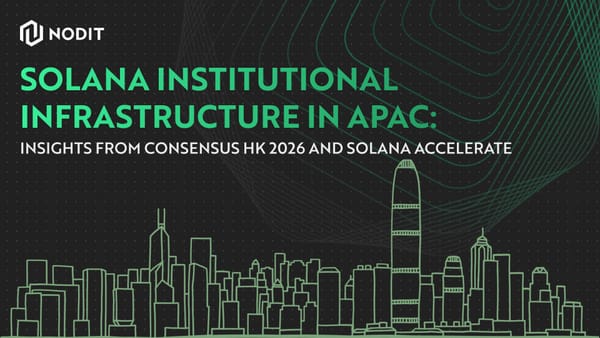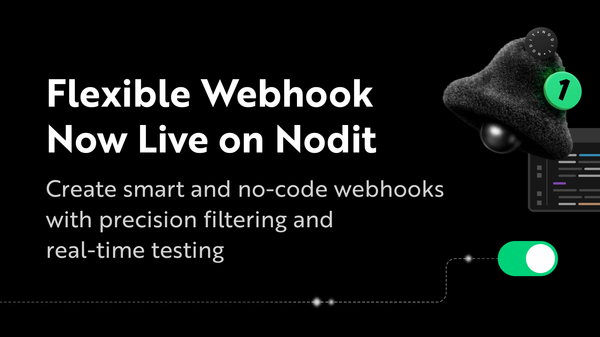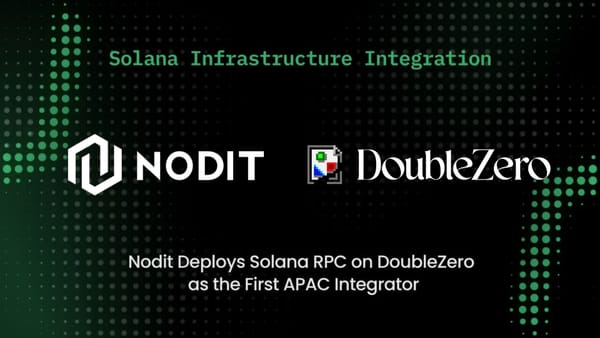Maximizing the Value of Ethereum: How Radius Leverages Nodit's Web3 API
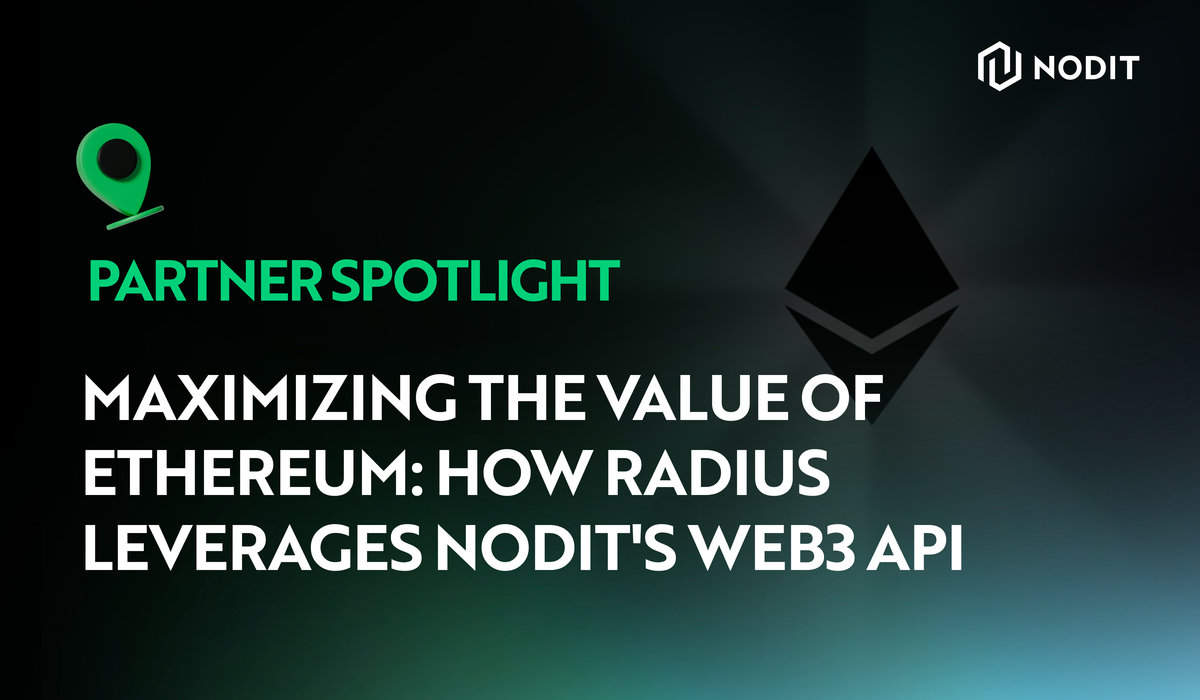
Radius is building the economic infrastructure to help rollups capture revenue through MEV while opening up arbitrage opportunities for searchers. With Nodit's high-performance Web3 API infrastructure, Radius is focusing on the future of L2 economies and accelerating its work with solutions like Secure Block Building (SBB) and Lighthouse to drive sustainable growth across the Ethereum ecosystem. This article comes from a chat with Jayden Kim, Co-founder of Radius.
About Radius: Empowering Ethereum’s Future
Founded with a clear vision to maintain Ethereum’s mainstream dominance, Radius operates as a decentralized infrastructure builder, pioneering innovative protocols like secure block building and lighthouse to create stronger economic bonds across the ecosystem. Radius is constructing protocols that strengthen economic ties between various Ethereum ecosystem participants.
Through initiatives like "Secure Block Building" and "Lighthouse," Radius facilitates economic cohesion by linking rollups and searchers. These protocols enable rollups to sell blockspace to searchers, fostering a more interconnected and profitable network.
"We believe Ethereum remains the most legitimate and decentralized network. Our mission is to nurture economic bonding protocols that drive Ethereum's long-term leadership." - Jayden Kim, Co-founder of Radius
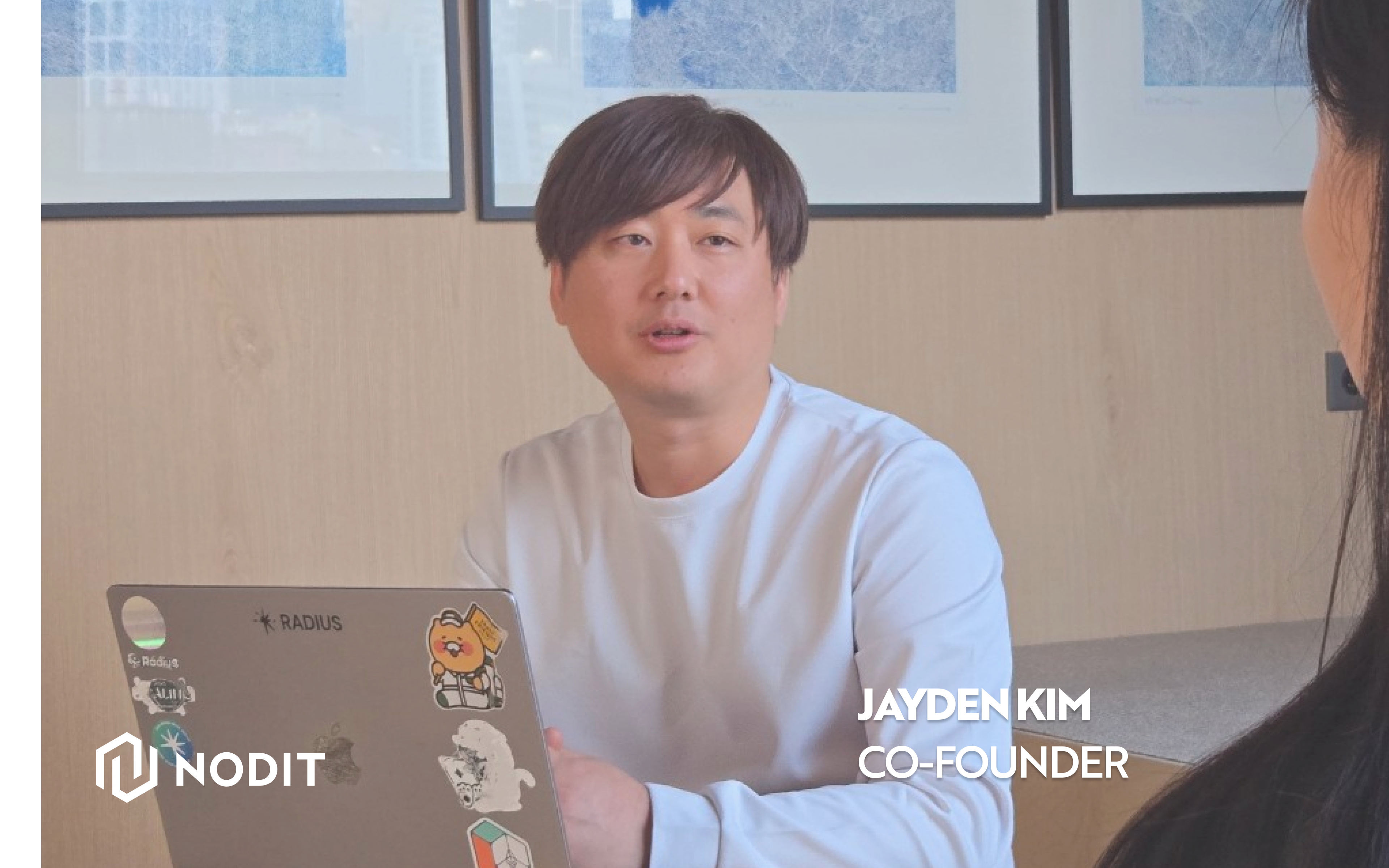
Infrastructure First: Why Ethereum?
Radius's focus on infrastructure stems from a belief that long-term blockchain innovation depends on robust, scalable foundations.By addressing challenges like harmful MEV, economic stability, and connectivity, Radius aims to support sustainable growth in decentralized ecosystems.
Radius chose Ethereum because of its decentralization and robust ecosystem. With an intense focus on Layer 2 and Layer 3 solutions, Radius observed that builders in the Ethereum community are deeply committed to infrastructure innovation, from zk-rollups to advanced scaling strategies.
Although Radius acknowledges potential future expansion into chains like Solana and Sui, for now, their concentration is firmly on Ethereum's multi-layered development.
"Blockchain infrastructure is still transitioning from early-stage to mid-stage maturity. We often find ourselves co-building solutions rather than using fully finished products," - Jayden Kim, Co-founder of Radius
As a B2B infrastructure provider, Radius has extensive experience collaborating with rollup frameworks and other RaaS (Rollup-as-a-Service) providers, learning firsthand the evolving realities of Web3 infrastructure development.
Leveraging Nodit for Transaction Analysis
Radius turned to Nodit out of a clear necessity: analyzing massive volumes of transaction data from the Optimism mainnet for a L2 arbitrage research project. The team found that pulling this volume of data with free RPC nodes was not only unstable but also extremely slow, making large-scale analysis nearly impossible within a reasonable timeframe.
Instead, Nodit offered a powerful alternative. By supporting Optimism mainnet and offering generous usage limits and competitive pricing compared to competitor services, Nodit became the obvious choice. Its RPC services, particularly the use of the eth_getLogs method with customizable block ranges, enabled Radius to conduct efficient, large-scale analysis.
"We needed stability and speed. Free nodes crashed or lagged. Nodit's infrastructure helped us drastically reduce research time and complete our analysis on schedule"
Yoongdoo Noh, Research Team Lead at Orakle
Radius is actively engaged in a collaborative research project on L2 arbitrage with domestic academic groups, enabled by the fast, reliable access to blockchain data that Nodit provides. Additional integration discussions, around different blockchain networks, are ongoing.
What’s Next for Radius: 2025 and Beyond
Radius is currently preparing for both testnet and mainnet launches, with a strong focus on generating practical data through L2 partnerships.
"This year marks the beginning of our journey, a critical period for expanding and validating our services," says Jayden. The team is extending their focus to include retail audiences while maintaining strong relationships with institutional partners.
Additionally, Radius has established collaborative relationships across the Ethereum ecosystem, including with rollups, EigenLayer, Symbiotic, various searcher firms, and liquidity protocols like Ether.fi. They're also actively working with projects developing rollup frameworks such as OP Stack and Arbitrum Orbit.
Radius’s commitment to Ethereum's future is undeniable. With Nodit’s robust infrastructure supporting its mission-critical data needs, Radius is poised to become a major player in strengthening the economic ties of the Ethereum ecosystem.
🔎Want to Know More About Nodit?
Nodit is a platform aims to provide reliable node & consistent data infrastructure for scaling your dapps in multi-chain environment. The core technology of Nodit is a data pipeline that performs crawling, indexing, storing, and processing of blockchain data, along with a reliable node operation service. With processed blockchain data, developers can leverage on-chain and off-chain integration, advanced analytics and visualization, and even AI modeling to build exceptional Web3 products. Nodit, as an infrastructure partner of Aptos, provides full node and indexer APIs for the Aptos ecosystem.
Homepage l X (Twitter) l Linkedin
Join us and build more👊🏻


